II. A gap in the policy
Peace is a concept written by the blood of previous generations. Therefore, not only showing our appreciation and gratitude with beautiful gestures, each of us, first and foremost the policy makers, must perfect the policy for the victims of Agent Orange.
“Gaps” that need filling
It can be said that the elaboration and perfection of the system of preferential policies for people with meritorious services to the revolution have shown the gratitude and humanity of our Party, State and people for their dedication and sacrifice to the revolution, thereby, creating a support to help them deal with the risks that may happen to their lives. In particular, the policy for war participants infected with toxic chemicals and their offspring is clearly stipulated in the Ordinance on Incentives for People with meritorious services to the revolution No. 26/2005/PL-UBTVQH11; the Ordinance amending and supplementing a number of articles of the Ordinance on Incentives for People with meritorious services to the Revolution No. 04/2012/PL-UBTVQH13 and a number of relevant Directives and Resolutions.
Although being considered quite comprehensive, in fact, the policy \"coat\" for Agent Orange victims has become so tight with many \"holes\" that need to be \"patched\" soon. Currently, the beneficiaries of policies according to the provisions of the Ordinance on Incentives for People with meritorious services to the revolution only apply to the 2nd generation (born children of Agent Orange-infected war participants). The 3rd generation (grandchildren of war participants) is not entitled to the policies. In the meantime, the Joint Circular No. 20/2016/TTLT-BYT-BLDTBXH dated June 30, 2016 of the Ministry of Health and the Ministry of Labor - Invalids and Social Affairs, also only guides the assessment process of disease and deformities for war participants and their offspring. The 3rd-generation victims, although suffering from many diseases, including those on the list of 17 diseases, deformities and malformations related to exposure to toxic chemicals, there is no written guidance on this issue.
 |
The level of danger of Agent Orange to human health and life has been confirmed by scientists. More specifically, it has been eloquently demonstrated by unhealthy bodies ravaged by disease, deficient minds and people that have never enjoyed a single day of life to its truest meaning. However, the \"notoriety\" of this poison is also shown in its ability to pass generations to generations and the consequences for the next generation are incalculable.
Leaving behind his youthful years and a part of his health on the battlefield, but Mr. Vu Tien Su (Dong Nam commune, Dong Son district, Thanh Hoa province) still can’t enjoy the peaceful time for the rest of his life. The sequelae of Agent Orange not only destroy the health of a man who is over 70 years old now and rob his daughter\'s normal life. More painfully, it is haunting and gnawing the lives of his two grandchildren, when one of his grandchildren has a congenital heart defect and intellectual disability, and one has severe psoriasis. While trying to have them treated with the diseases, he has to prepare for paper work to have them recognized as victims of Agent Orange, but for almost 10 years now, the only answer he has received is: “no policy for the F2 victims”.
Despite its urgency in practice, it seems that the supplement, completion and implementation of the policy for victims of Agent Orange from the third generation onwards are still stagnant. Especially, recently, Directive No. 14-CT/TW dated July 19, 2017 of the Secretariat on continuing to strengthen the Party\'s leadership over the policy for people with meritorious services to the revolution, has set forth the need to review and perfect the legal system and policies for people with meritorious services to the revolution; in which, policy for 3rd generation victims of toxic chemicals is an important content. However, since the Directive was issued up to now, the review, supplement and perfection of subsidy for this object have yet to be implemented.
Not only missing the F2 victims, but the policy for Agent Orange victims also ignores a rather special object: the caregiver of the victims. Although the war has ended for decades, its destruction is still present in the bodied of Agent Orange victims. And the victims\' wives and mothers understand the post-war grief more than anyone else. At the age of 64, Ms. Trinh Thi Thuan (Nguyen Binh ward, Nghi Son town, Thanh Hoa province) has spent nearly half of her life taking care of her polio husband and her deformed, mentally ill son. Instead of laughter and talk, the permanent scene in her house is the immobility of the husband - an Agent Orange victim named Mai Huu Ly, and the screaming and smashing of the child. The chain that ties the leg of the deformed child is like a chain that wraps the life of the small, weak woman. The feelings of sorrow, helplessness and resentment sometimes come to but then she still tries to live and patiently takes care of her husband and children, even though she knows that her strength is limited.
The unhappiness of the woman whose husband and two sons are victims of Agent Orange seems to multiply for Mrs. Nguyen Thi Thinh (Dong Cuong ward, Thanh Hoa city), when her grandson is mentally ill, intellectually disable, deaf and mute that needs to be taken care of. Living in a 3-generation-family but she is the only person that is both physically and mentally strong and the only person to rest on for the 4 unhealthy lives. Similar to Ms. Thinh\'s situation, Ms. Nguyen Thi Dan (Quang Trung commune, Quang Xuong district, Thanh Hoa province) has 4 daughters, all of whom are insensible. Not only taking care of her children alone, she also runs back and forth around the village even at night to find her children when they have a seizure and wander around. Another case if Ms. Nguyen Thi Tich (Nga Phuong commune, Nga Son district, Thanh Hoa province) who refuses to get marriage to look after her two crazy orphaned nephews, when her brother and sister-in-law all died...
It is impossible to mention all the unhappiness and tragedy of nearly 4,800 families with 2 or more victims of Agent Orange. Although the preferential policies are only for the contributions and sacrifices of people with meritorious services. However, rationally and emotionally speaking, the silent sacrifices of the women who are living in endless torment every day also need our sympathy and sharing. Therefore, supplementing supportive policies for these subjects not only shows the humanity in building welfare policies but also gives them more support, so that the unfortunate lives are not left behind in loneliness and despair.
Fixing the \"lateness\"
Although current laws have clearly stipulated the procedures for policy claims, the settlement of preferential regimes for the beneficiaries requires the participation of several levels, branches, and units with strict procedures... Therefore, there are many cases that are falling into stalemate, due to the lack of information and proof that can confirm that they are victims of Agent Orange.
Clause 2, Article 57, Circular 05 of the Ministry of Labor, War Invalids and Social Affairs stipulates dossiers for enjoying preferential regimes for war participants infected with Agent Orange in which there must be “one of the documents proving the time of operation in the area sprayed with the US toxic chemicals. However, in reality, their documents only show the unit\'s name, but do not specify where their unit was stationed or operated. Therefore, when receiving the documents, the authorities can’t verify their time and place of operation, so it is difficult to solve. That is not to mention that in the context of fierce war circumstances, many people have lost their papers. This is the main reason why their application is not eligible.
And yet, the assessment of diseases according to regulations also shows shortcomings. According to Article 7 of the Joint Circular No. 20/2016/TTLT-BYT-BLDTBXH, dated June 30, 2016 of the Ministry of Health, and the Ministry of Labor – War Invalids and Social Affairs, stipulating 17 diseases, illnesses, deformities, malformations related to exposure to toxic chemicals, including acute or sub-acute peripheral neuropathy, in order to have this disease verified, claimants must show their medical record dated before April 30th, 1975. This is almost impossible for the claimants. Or with Type-2 diabetes, although many claimants have contracted to this disease for decades, but when tested, their blood glucose indexes do not meet the required level. The reason is that they have to take medicine every day to reduce the nature, extent and risks of the disease. If they want to their disease verified, they must stop taking the drug so that the glucose may \"reach the required level”. This is like betting with death, because their health, even their lives might be at risk waiting for the results of the test.
Through the review of the functional agencies, by 2020, in Thanh Hoa province alone, 1,187 war participants and their children do not have enough documents for AO policy claim, in which direct objects are 791 and indirect objects are 396 people. The underlying cause is the lack of documentations regarding the battlefield and the specified disease type/level. This situation requires us to adjust and supplement policies to suit the reality. Directive No. 14-CT/TW dated July 19th, 2017 of the Secretariat on continuing to strengthen the Party\'s leadership over the work of people with meritorious services to the revolution, stated: \"Basing on legal provisions, speed up the process of certifying people with meritorious services to the revolution, settling backlog documents with publicity, transparency, and no omission. Studying, considering and certifying the cases that were previously ineligible for certification, or have been concluded as ineligible by competent authorities, but now have more proofs and other evidence as prescribed\". Legal basis is now available. What we should do now is to concretise the spirit and content of the Directive into specific mechanisms and policies.
The process and procedures for certifying the claimants are necessary because this is the basis for the authorities to verify and recognize the right claimants. However, the barriers and cumbersome in the implementation of steps and stages of the process have prevented the claimants from benefiting the policy. Then, many people did not have enough time and health to wait for the preferential treatment. The famous war writer, Chu Lai, once said that there was a generation of young men who went to the battle enthusiastically. They passed away with only one procedure called the \"blood procedure\". The country honors them, and affirms their dedication! Dozens of procedures, records and documents are necessary. But sometimes, it is just a \"dead procedure\" compared to the \"blood procedure\" that the previous generation has sacrificed for peace and independence. Therefore, more than ever, it is necessary to have a reasonable, just and responsible insight into this matter in order to \"widen the policy path\" for those who deserve to benefit.
(to be continued)



_thumb_720.jpg)
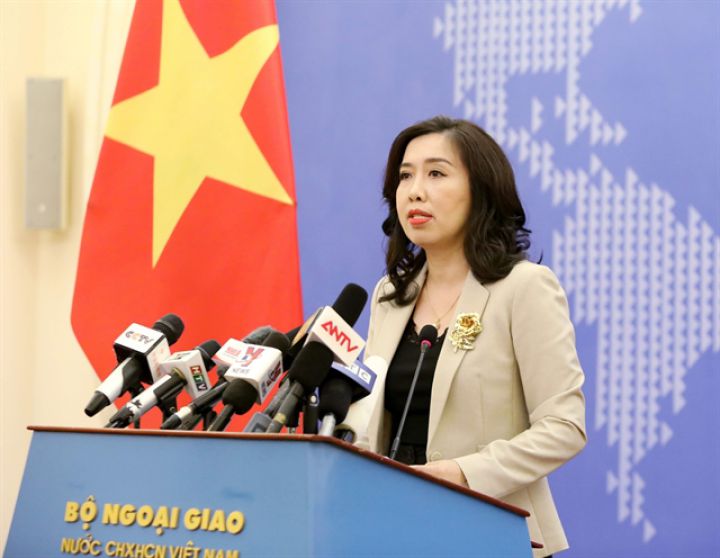
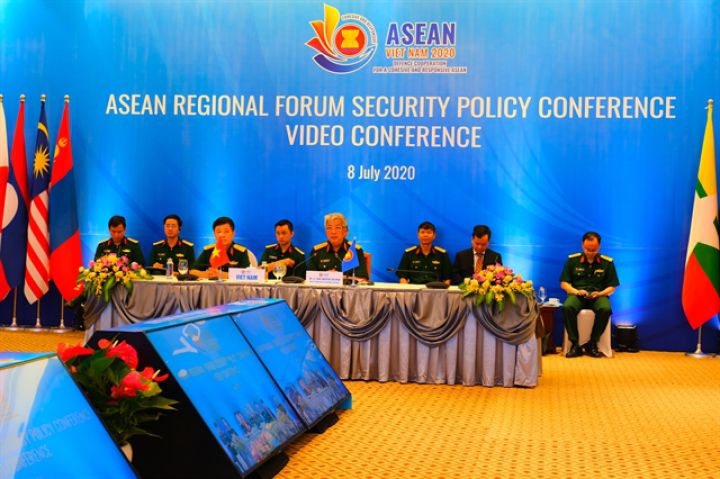
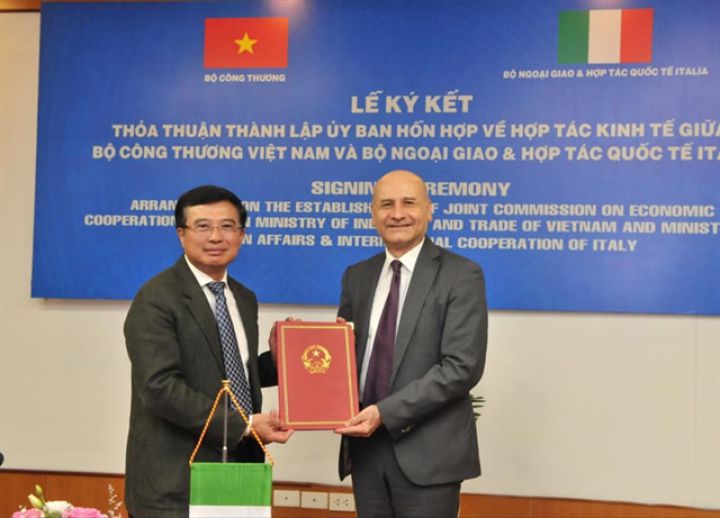




_thumb_720.jpg)

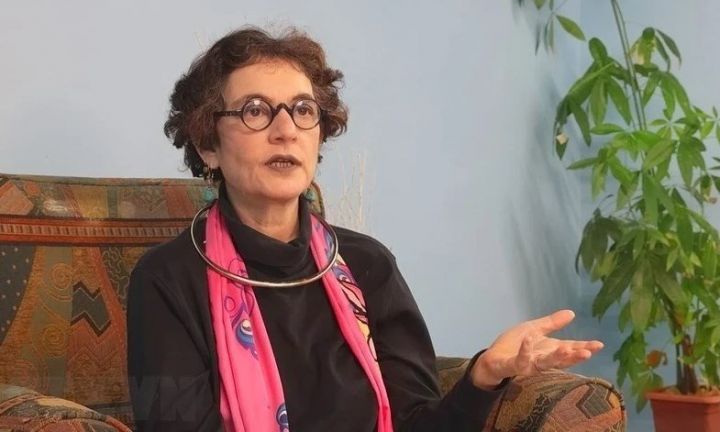










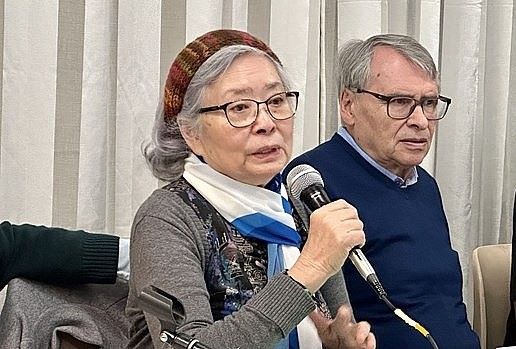
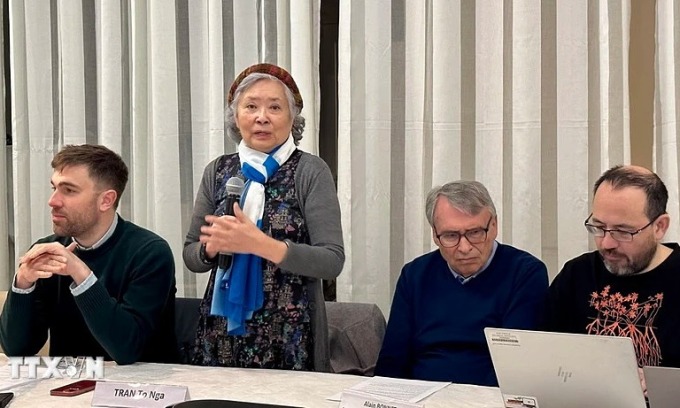

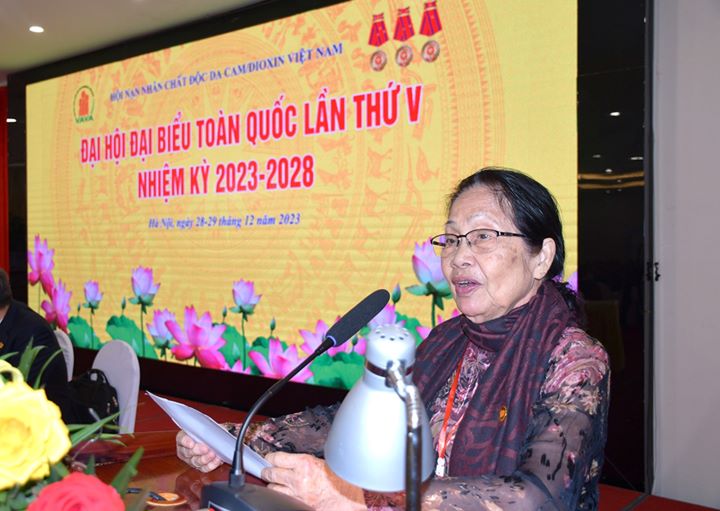



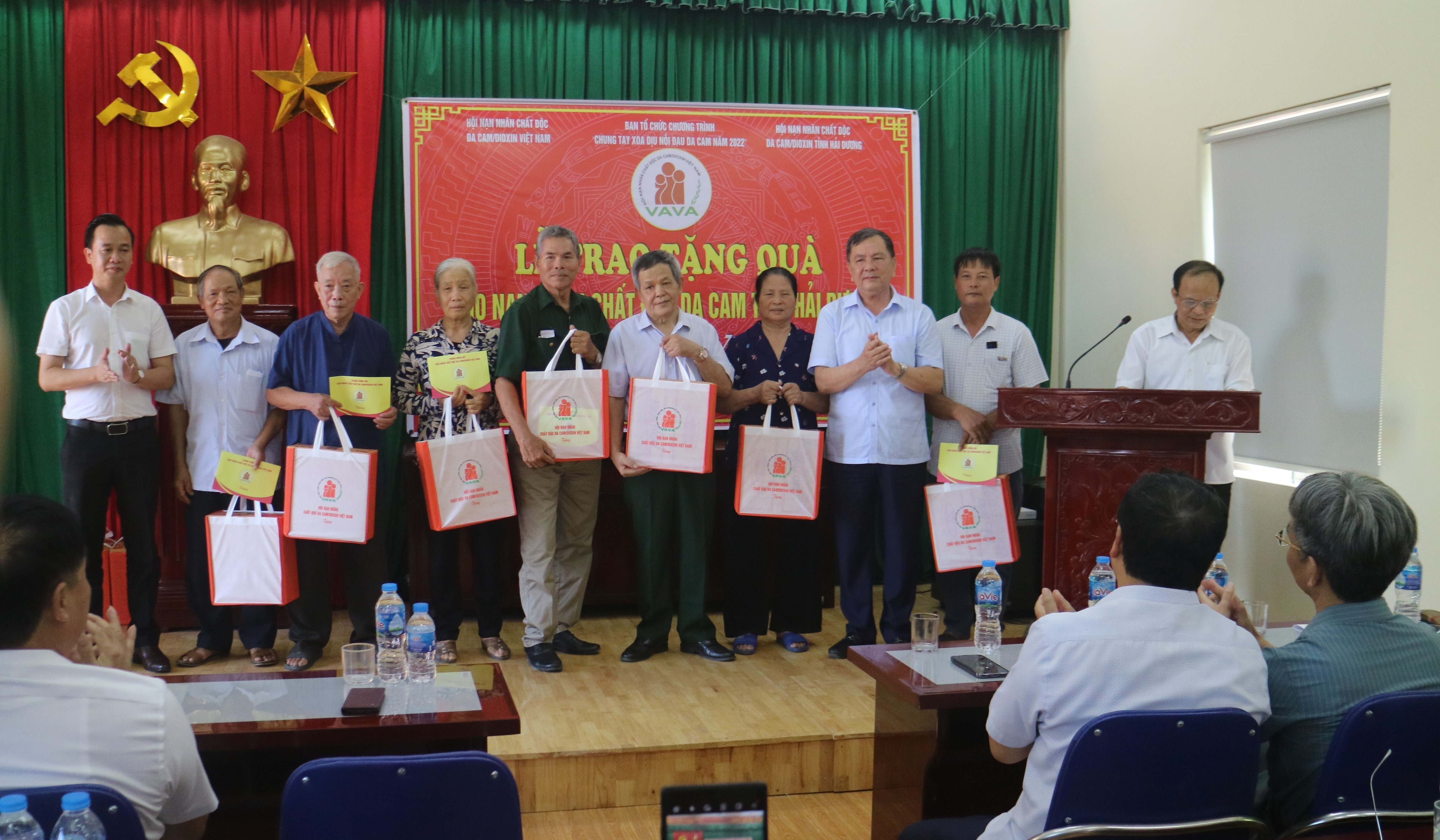
Comment